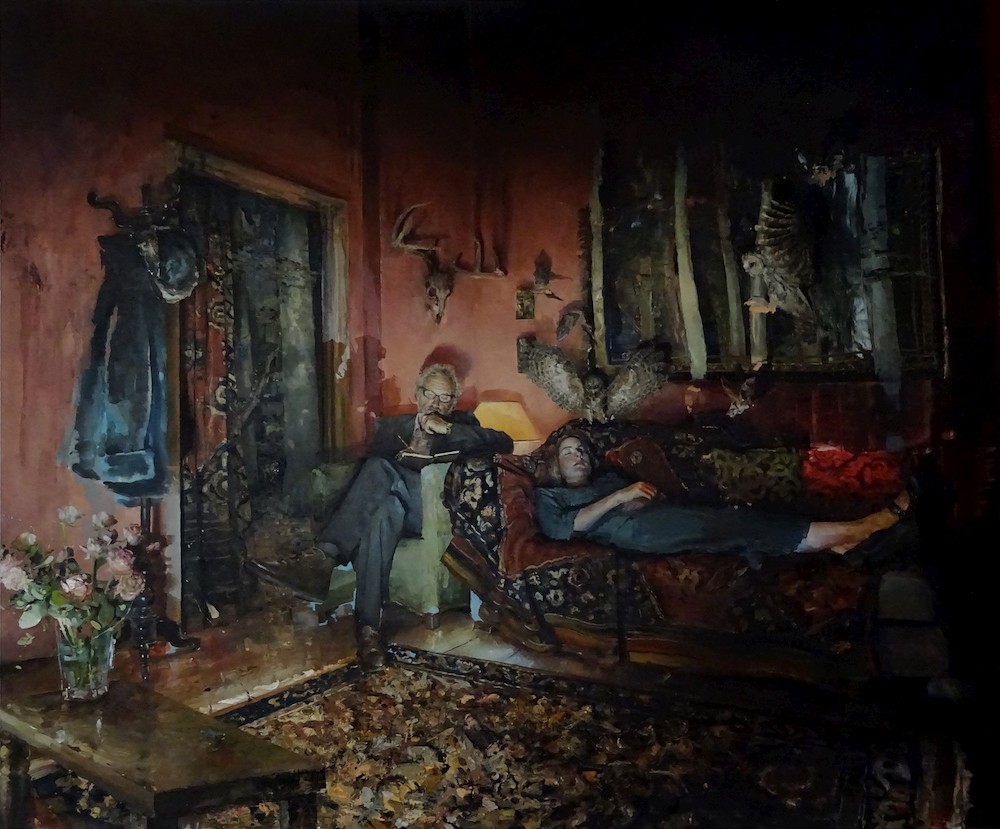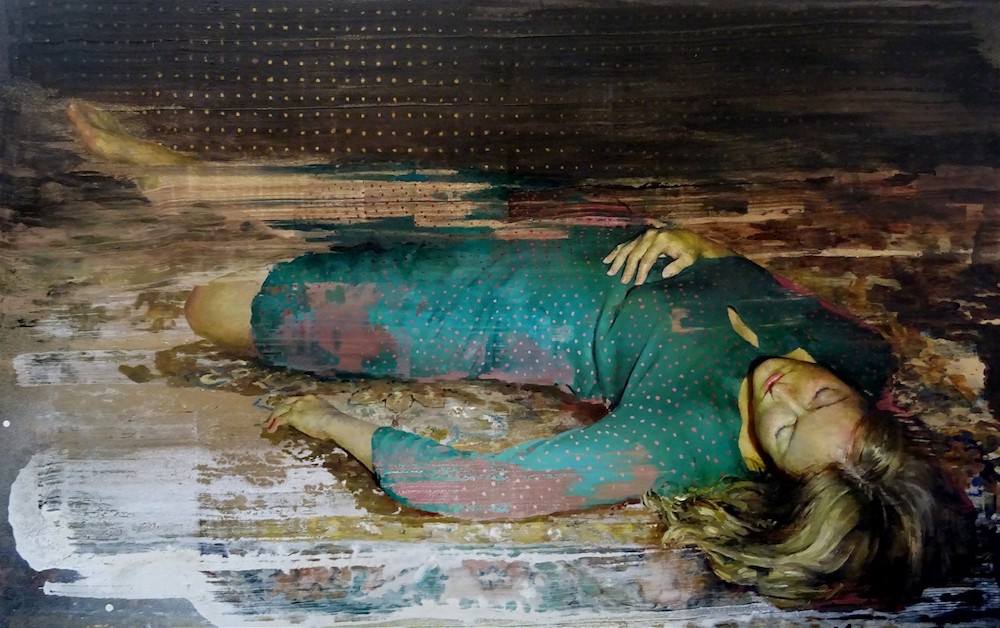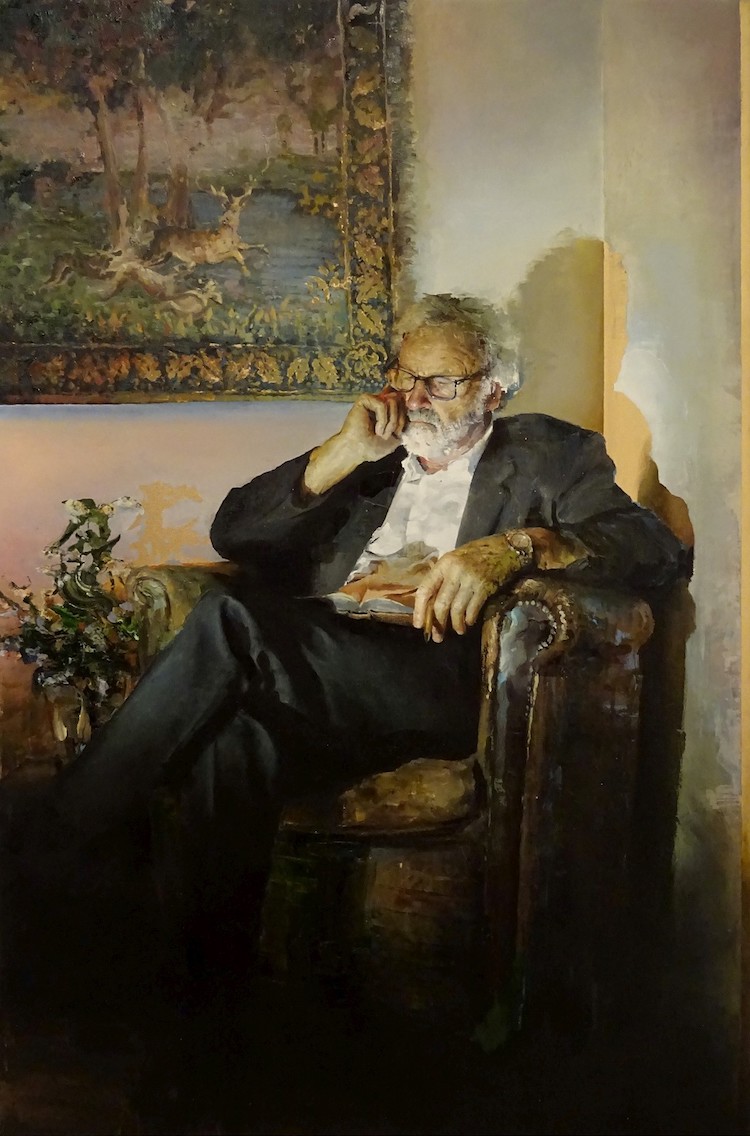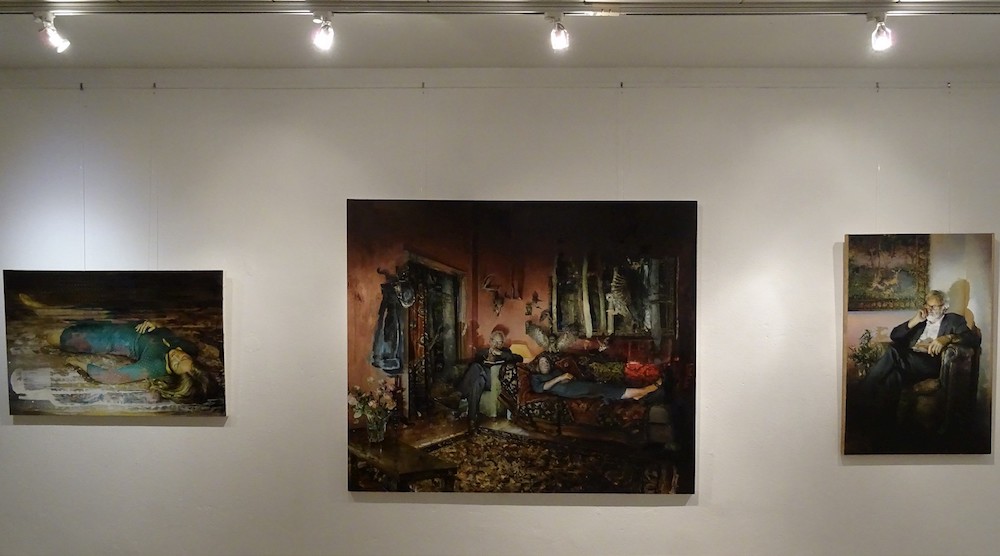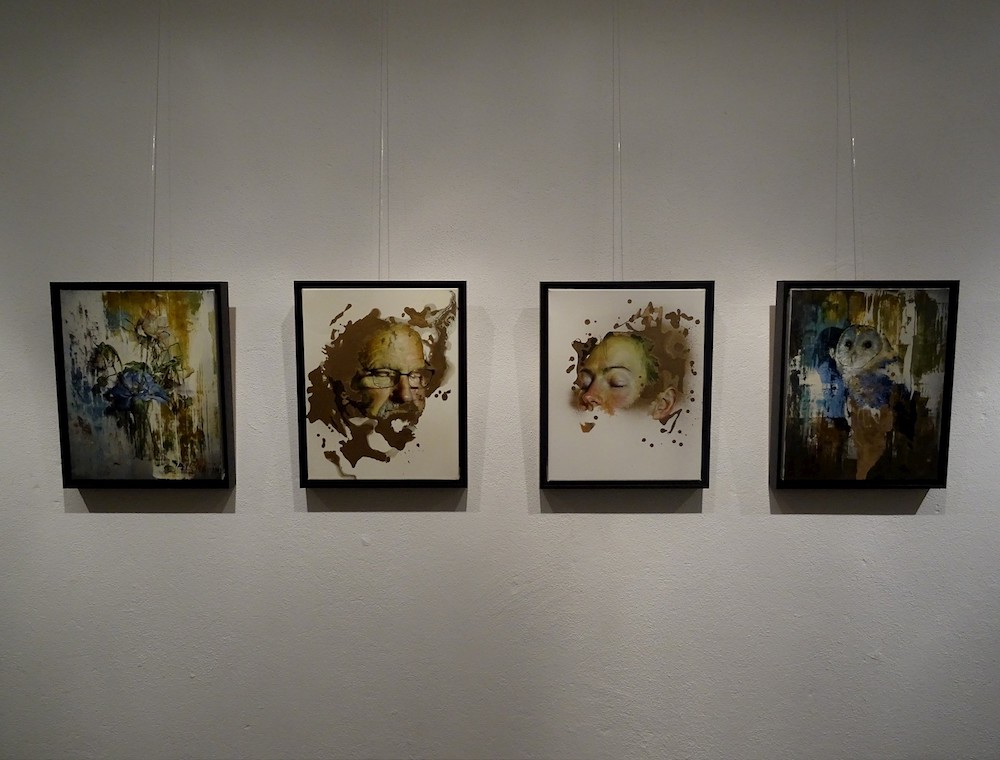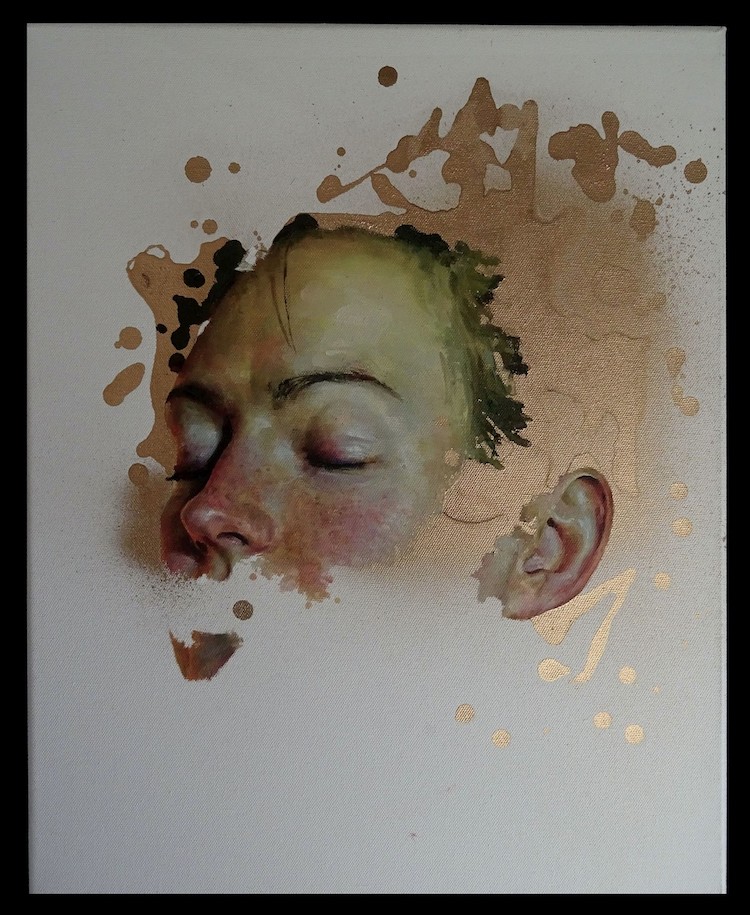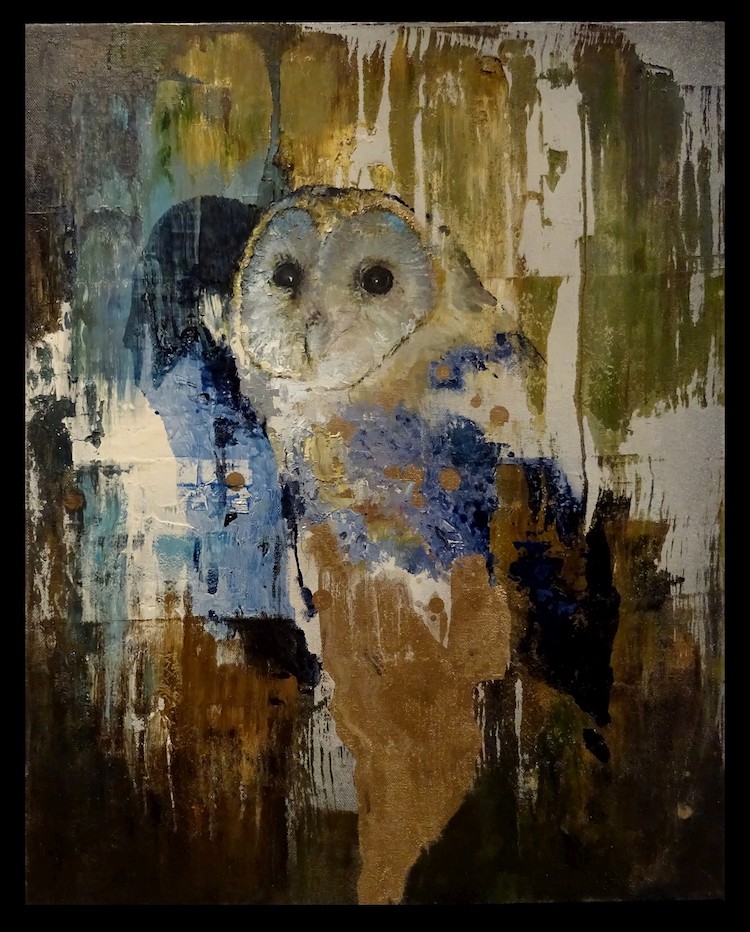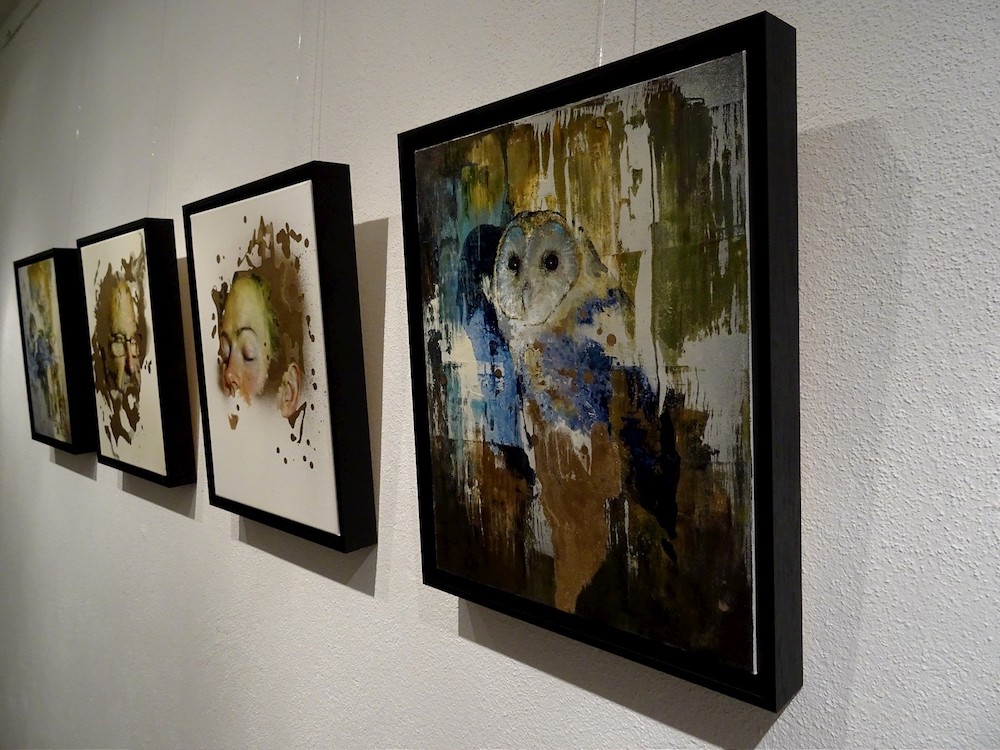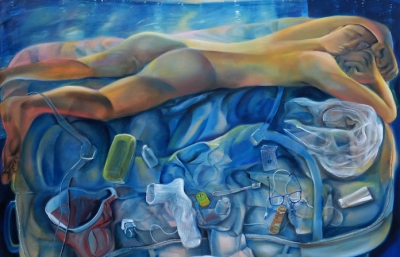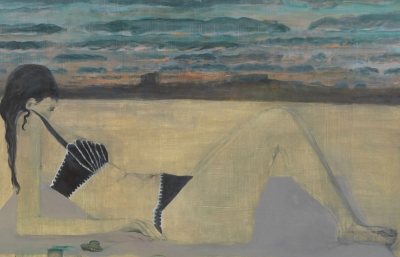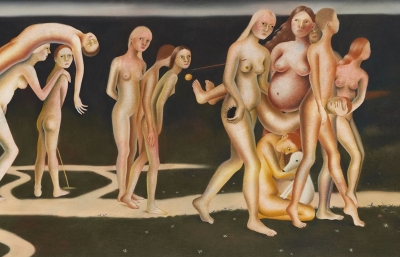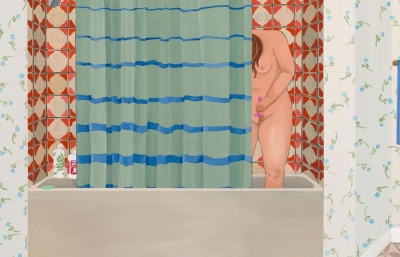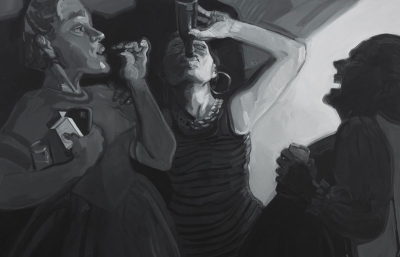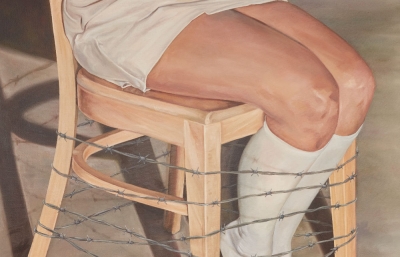Almost a year and a half since introducing a new body of work, Fintan Switzer recently revealed the newest series of paintings he has been working on. Originally conceived while visiting the German Expressionist Brücke Museum just outside Berlin, the title of the series is borrowed from the Grunewald forest where the museum is located. The main theme of the work is the struggle between the rational and the irrational, an eternal and universal phenomenon that Switzer placed among classic turn-of-the-century German imagery. Playing and repurposing some of the clichés of that time, the images question the harmony between two individuals through the characters of "doctor" and "orphan."
As usual with Switzer's work, the atmospheric, complex, and rich composition of the images is not an aesthetic trick. The room within which the titular picture is placed in is a play on the Freudian consulting room. Depicted through well balanced painterly technique, the painting captures chaotic decors that seemingly comes to life inside of the space. From color choices, carpet patterns, suggestive light and wall decorations, the composition of the piece puts focus on the conversation between the two main characters captured in an almost meditative state. The Doctor representing the rationality and composure and orphan representing irrationality and abandon. Along with the opposing symbolic, the vertical versus horizontal representation of characters is also suggesting the upward ambitions of men versus a stereotypical obtuse irreverence of women.
The entire body of work feels like a theatre piece in which each of the images presents the act that builds towards a great finale. From introducing the entire cast on a single portrait piece, towards the main scene which carries the title of the whole "performance", to the depiction of what happens after. Missing the big, if not the main part of the story, this narrative adds to the mystery whose resolving Switzer imposed upon himself. Ending the whole story with a sense of tragedy, the story feels placed in the distant past while feeling contemporary and actual. Touching the subject of emancipation, feminine or otherwise, Grünewald creates this heavy theatrical feel of realness which is juxtaposed against the popularly assumed notions about it. —Sasha Bogojev

